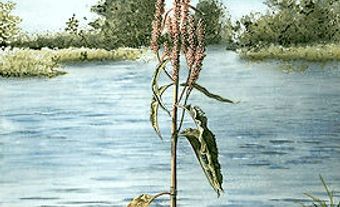Milkweed is the common name for perennial, herbaceous plants of genus Asclepias, family Asclepiadaceae (from Greek physician Asclepius). One hundred species occur worldwide; 13 are native to Canada. Except for butterfly weed (A. tuberosa), all Canadian species have milky juice with toxic properties. Leaves are simple; flowers grow in large clusters. Seed pods are generally large, often containing hundreds of seeds, each with a silky parachute. In nature, several species (eg, butterfly weed) are highly regarded "showy" plants. Six species are listed as Canadian weeds, the most important of these being common milkweed (A. syriaca), found from Manitoba to the Maritimes and abundant in southern Ontario and Québec. It spreads by creeping underground rootstocks and by seeds. In Ontario, it was grown for fibre and latex rubber during WWII; other economic uses have been suggested. It is a source of nectar for monarch and other butterflies. Native people valued its medicinal properties and used the fibre for rope and weaving.
See also Aboriginal Uses of Plants.

 Share on Facebook
Share on Facebook Share on X
Share on X Share by Email
Share by Email Share on Google Classroom
Share on Google Classroom


